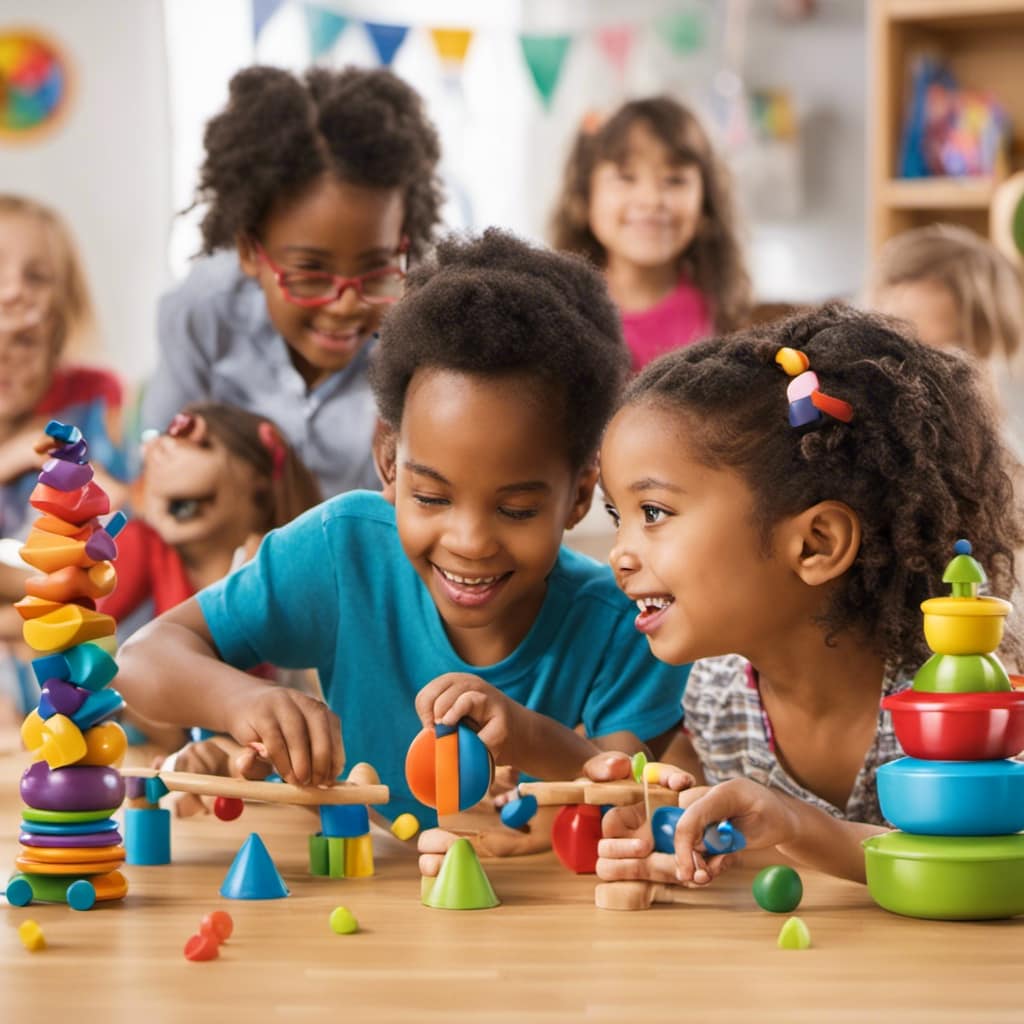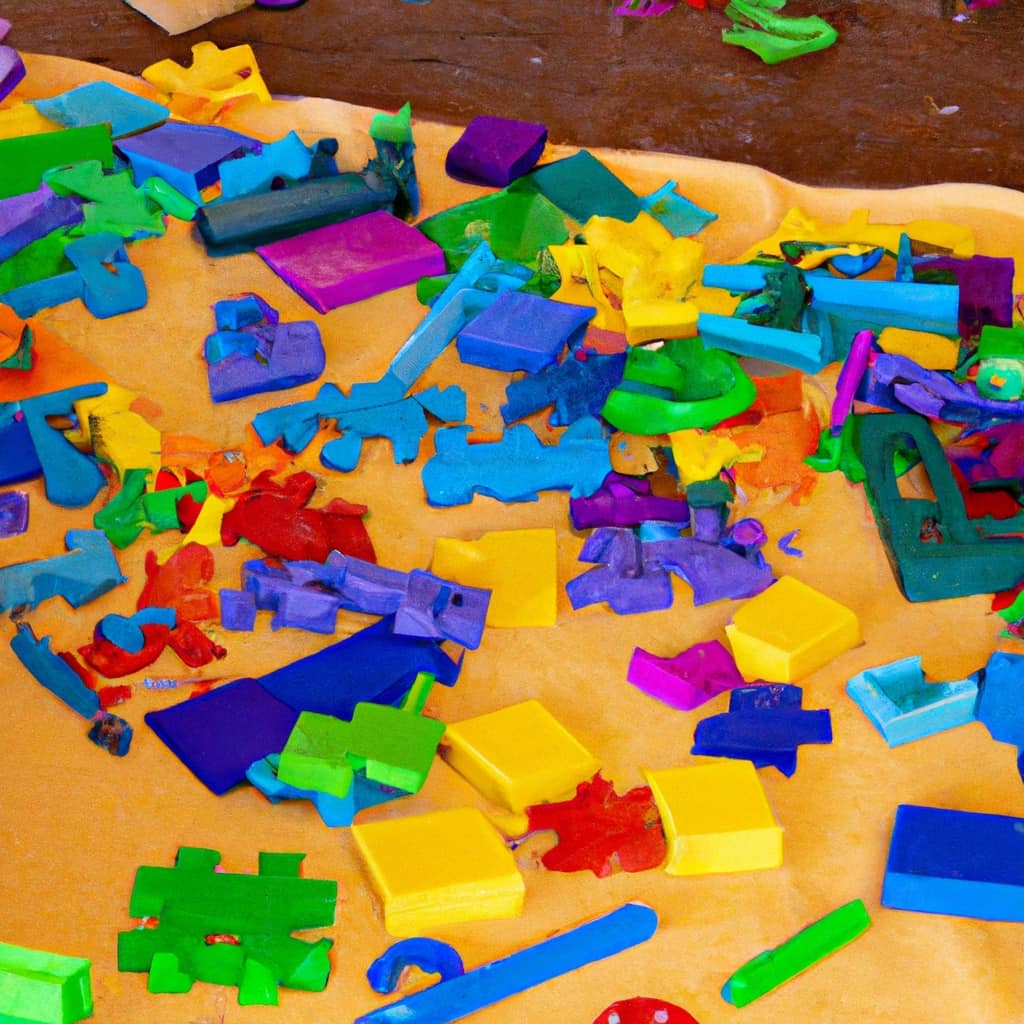I get how crucial it is to set up our young ones for a win. That’s why I’m all for giving them the reins early to choose their own adventures.
By allowing our kids to make choices in their clothing, meals, and activities, we are helping them develop essential decision-making skills. When we involve them in the decision-making process, we teach them to consider options and take responsibility for their choices.
In this article, we will explore how encouraging independence, promoting independent play, and fostering problem-solving skills can empower our kids for success in life.
Key Takeaways
- Encouraging independence and decision-making skills through choices in clothing, meals, and activities is important for children’s development.
- Involving children in the decision-making process teaches them to consider options and take responsibility for their choices.
- Promoting independent play and creativity through open-ended toys fosters problem-solving skills and imagination.
- Fostering exploration, trying new things, and a growth mindset supports children’s growth and development.
Encouraging Independence Through Choices
I empower my child to make choices in clothing, meals, and activities to develop their decision-making skills. Allowing autonomy in decision-making is crucial for developing self-confidence in children. By involving them in the process of choosing what to wear, what to eat, and what activities to engage in, we are giving them the opportunity to consider options and take responsibility for their choices.
Providing age-appropriate options and guiding them when needed, we celebrate their decision-making successes. By empowering children in this way, we are setting them up for future success. It not only helps them develop their decision-making skills but also nurtures their self-confidence and independence.
Giving children the freedom to make choices allows them to learn from their experiences and develop a sense of ownership and responsibility over their own lives.

Involving Kids in Decision-Making
Encouraging children to make choices and be involved in the decision-making process is essential for their development and growth. Here are four ways to involve kids in decision making and promote independence through choices:
-
Offer age-appropriate options: By giving children choices in clothing, meals, and activities, we empower them to think critically and make decisions based on their preferences.
-
Guide when needed: While it’s important to let children make their own choices, sometimes they may need guidance. By providing support and advice, we can help them navigate their options and learn from their decision-making process.
-
Celebrate their successes: When children make decisions and take responsibility for the outcomes, it’s crucial to celebrate their successes. This positive reinforcement encourages them to continue making choices and builds their confidence.
-
Set them up for future success: By involving children in decision making, we are equipping them with valuable life skills. They learn to consider different options, weigh pros and cons, and take ownership of their choices, setting them up for future success.
Promoting Independent Play and Creativity
Promoting independent play and creativity fosters a sense of imagination and problem-solving skills in children. Encouraging autonomy and self-expression is essential in nurturing creative thinking and problem-solving skills.

By allowing children to explore and take charge of their own play, we empower them to think critically and come up with innovative solutions. Open-ended toys, such as building blocks and art materials, provide opportunities for children to express themselves and develop problem-solving skills.
Through independent play, children have the freedom to make decisions and cultivate their unique ideas. This fosters a sense of autonomy and self-expression, which are crucial for their overall growth and development.
Fostering Problem-Solving Skills
Allowing children to face challenges and think critically fosters their problem-solving skills and encourages growth. Here are four key strategies to foster problem-solving skills and critical thinking in children:
-
Encourage brainstorming: Encourage children to come up with multiple solutions to a problem. This helps them develop their creativity and think outside the box.
-
Teach decision-making: Help children understand the consequences of their choices and make decisions based on logical thinking. This helps them develop their problem-solving skills and learn from their mistakes.
-
Provide puzzles and games: Engage children in activities that require problem-solving, such as puzzles and board games. These activities challenge their critical thinking skills and help them develop strategies to solve problems.

-
Foster a growth mindset: Teach children that mistakes are opportunities for learning and growth. Encourage them to persist in finding solutions and not be discouraged by setbacks.
Supporting Exploration and Growth Mindset
I actively support and nurture children’s curiosity and mindset for growth by creating an environment that encourages exploration and learning. One way I do this is by supporting outdoor exploration. I believe that nature offers endless opportunities for learning and discovery. By encouraging children to explore the outdoors, I foster their sense of wonder and help them develop a deeper connection with the natural world. Another important aspect of supporting a growth mindset is by encouraging children to try new things. I provide a supportive and encouraging environment where they feel safe to take risks and step outside of their comfort zones. By doing so, I help them develop resilience and a belief in their own abilities. Through supporting outdoor exploration and encouraging a growth mindset, I empower children to embrace new experiences and cultivate a lifelong love of learning.
| Supporting Outdoor Exploration | Encouraging a Growth Mindset | Fostering Independence |
|---|---|---|
| – Encourage outdoor play | – Foster a belief in their | – Provide age-appropriate |
| and nature exploration | own abilities | options |
| – Create a supportive | – Set goals and celebrate | – Guide children when |
| environment | their achievements | needed |
| – Provide opportunities for | – Teach them that mistakes | – Celebrate their |
| discovery and learning | are opportunities to learn | decision-making |
| – Emphasize the importance | – Foster a mindset of | successes |
| of nature and outdoor | growth and resilience | |
| experiences |
Building Resilience and Overcoming Obstacles
Facing challenges and finding solutions on my own helps me build resilience and develop problem-solving skills. It’s through overcoming obstacles that I learn to adapt and grow. Here’s how I develop resilience in the face of challenges:
-
Embracing a positive mindset: I believe that every challenge is an opportunity for growth. By reframing obstacles as learning experiences, I can approach them with a solution-oriented mindset.
-
Seeking support when needed: While I value independence, I also recognize the importance of reaching out for help when necessary. It’s okay to ask for assistance and lean on others for support.
-
Learning from mistakes: Instead of dwelling on failures, I use them as stepping stones towards success. Each setback teaches me valuable lessons and sharpens my problem-solving skills.

-
Taking calculated risks: I understand that progress often requires stepping outside of my comfort zone. By taking calculated risks, I push myself to overcome challenges and discover new strengths.
Through these strategies, I continuously develop my resilience and become better equipped to face the obstacles that come my way.
Montessori Principles for Independent Play
By incorporating Montessori principles for independent play, children are provided with the opportunity to explore and learn through their own choices and interactions with open-ended toys.
Montessori toy organization is an essential aspect of creating an environment that fosters independent play. Using open shelves or baskets to display toys allows children to see and choose from a variety of options. Rotating toys helps maintain interest and prevents overwhelm. Grouping toys by category or theme encourages children to make connections and explore different play scenarios.
The benefits of open-ended play are numerous. It promotes independent thinking, creativity, and imagination. It also develops fine motor skills, hand-eye coordination, concentration, and focus. Open-ended play with Montessori toys supports a child’s natural development and curiosity, allowing them to thrive and grow.
Benefits of Montessori Toys
Using Montessori toys offers several benefits for children.

Firstly, these toys promote independent play. They allow children to engage in self-directed play and explore their interests. This helps them develop problem-solving skills and encourages them to think for themselves.
Secondly, Montessori toys encourage creativity and imagination. They are designed to be open-ended, allowing children to use their imagination to create different scenarios and stories. This fosters their creativity and encourages them to think outside the box.
Thirdly, these toys help develop fine motor skills and hand-eye coordination. Many Montessori toys involve activities that require precise movements, such as stacking blocks or threading beads. These activities help children develop their fine motor skills and hand-eye coordination.
Lastly, playing with Montessori toys enhances cognitive development. By engaging in independent play, children learn to think critically, make decisions, and develop a greater understanding of cause and effect.
Overall, Montessori toys provide numerous benefits in enhancing cognitive development, while also promoting independent play, creativity, and fine motor skills.
Empowering Kids for Success in Life
I believe that fostering a sense of autonomy and providing opportunities for personal growth are crucial in preparing children for a successful future.

Empowering kids to make decisions and take charge of their own lives sets them up for success in life. By allowing them to make choices in clothing, meals, and activities, we are teaching them valuable decision-making skills.
Additionally, promoting independent play, creativity, and problem-solving skills through open-ended toys encourages their imagination and critical thinking abilities. Supporting exploration and trying new things, such as outdoor play and nature exploration, helps children develop a growth mindset and the confidence to strive for success.
Building resilience and problem-solving skills are also essential, as they teach children to overcome obstacles and learn from their mistakes. By empowering kids in these ways, we are equipping them with the skills and mindset necessary for a successful future.
Frequently Asked Questions
How Can Parents Effectively Involve Their Children in Decision-Making Without Overwhelming Them?
I involve my child in decision-making by establishing boundaries and encouraging autonomy. I provide age-appropriate choices and guide them when needed. Celebrating their successes helps them feel empowered without being overwhelmed.
What Are Some Examples of Open-Ended Toys That Promote Creativity and Problem-Solving Skills?
Open-ended toys, like building blocks and art materials, promote creativity and problem-solving skills. Children can explore different possibilities, think critically, and find solutions on their own, fostering their independence and decision-making abilities.
How Can Parents Support Their Children in Trying New Things and Exploring Their Interests?
I can support my child in trying new things and exploring their interests by creating a supportive environment that encourages exploration. It’s important to provide opportunities for them to discover and pursue their passions.

What Are Some Strategies for Helping Children Develop Problem-Solving Skills and Resilience?
To help children develop problem-solving skills and resilience, I empower them by encouraging independent thinking, providing support, and allowing them to face challenges. By doing so, I help them build confidence and learn valuable life skills.
How Do Montessori Principles for Independent Play Contribute to a Child’s Overall Development and Success?
Montessori principles for independent play contribute significantly to a child’s overall development. These principles promote independence, creativity, fine motor skills, concentration, and curiosity, setting them up for future success in life.
Conclusion
In conclusion, empowering kids for success through independence and decision-making is a key aspect of their development. By allowing children to make choices, we foster their decision-making skills and encourage them to take responsibility for their actions.
Through independent play and creativity, children can enhance their problem-solving abilities and express themselves freely. Supporting exploration and a growth mindset enables children to embrace new challenges and strive for personal growth.
Building resilience and incorporating Montessori principles further empower children to overcome obstacles and achieve success in life. So let’s empower our little ones and watch them soar!











